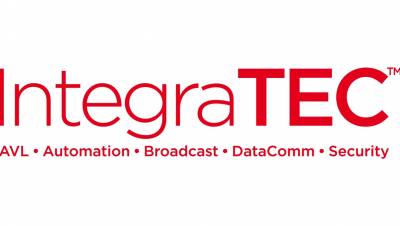by Iván Darío Quintero
With the arrival of broadband in homes, the benefits for families have increased every day and Telco companies (telecommunications companies) are constantly expanding their portfolio to provide more and more services supported in ADSL, Cable Modem, etc. technologies that are definitely converging all communications. In addition to the Internet, homes can now enjoy IP Voice, IP TV, online console games, video surveillance, and alarm monitoring.
And it is that the old alarm monitoring technology that worked through telephone channels, in addition to being more expensive, produced many limitations and more false alarms, which generated high operating costs for the end user and the monitoring centers. With the emergence of all kinds of devices to work on IP platforms, both wireless and wired, and the rapid growth of broadband installations in homes, the monitoring of home alarms by broadband was seen as a consequence of the unstoppable technological developments.
Consequently, at the moment in Latin America what had to happen with these technologies is happening, given that the companies that provide broadband service in the countries of the region are generally Telco companies and that the companies that work with alarm monitoring cannot assume the cost of a broadband service because it would raise enormously the costs to the end user; the partnership between the two seemed the safest and most cost-effective way to provide the security service.
This case was presented in the city of Medellín, Colombia, where an alliance was made between two companies to offer this service, Une, a telecommunications company with more than 250 thousand users connected by broadband and Segurtronic, an alarm monitoring company.
All the equipment for this integration and technological support was supplied by Macro Alarms, technology provider companies and representative of DSC (Digitial Security controls) for Colombia. These three companies implemented what users know today as the Safe Home Une program, which offers the alarm monitoring service and video surveillance through broadband.
This type of alliances, according to the manager of Macro Alarms, Carlos Gómez, has been carried out with great success also in other Latin American countries such as Peru, Argentina and Chile, where DSC has joined with Telefónica for the implementation of IP monitoring, that in the case of Chile last year they already had installed about 70 thousand accounts.
Macro Alarmas Ltda. has been in Colombia for sixteen years and is the company in charge of providing the monitoring equipment of the project. End users of the program can choose to install in their homes a wireless system or a wired one, depending on their tastes. No matter where they are, the entire city of Medellín can be monitored or video monitored, the important thing is to have a broadband connection from Une and request the service.
Although the news is good, as far as heritage security is concerned and that it is a market niche that is practically to be exploited, the arrival of these services does not have everyone happy in the city, because most monitoring companies think that this type of alliances are a threat to the market and fear for their future.
The manager of Macro Alarms believes that this is not the case and comments on it, "when telco companies get into the monitoring business, they come communicating the need for security, where they have arrived they have revolutionized the issue and have driven it more".
"Initially people see it as a threat and in the short term they realize that it is a benefit, because the problem of entry is to generate culture and this is achieved with advertising, informing of situations and creating the need for alarm monitoring; then the telco company arrives investing capital in this sense and getting customers, but the already traveled and experienced alarm monitoring companies fear because perhaps they may lose the business, but in the short term and at the end of the day; what the telco company does is to promote the monitoring business in the city and then in Colombia, benefiting everyone in the business."
And it is that with this injection that comes making the telco company in marketing those that end up winning are the monitoring companies, because the telco is not who is going to provide the monitoring service, it is the companies that have traditionally provided it and that have the technical team and personnel to do it, as the engineer Hueiman Montoya, coordinator of the technical department of Macro Alarms, told this media, "the challenge here is the migration of monitoring companies towards new technologies".
The truth is that traditionally in Colombia there has not been a culture of security, according to Carlos Gómez, "the Colombian market in relation to other countries is invested, because in countries like Chile monitoring is 80% residential and 20% is business sector, in Colombia 70% of monitoring is done for companies, corporations or entities and 30% is residential; the good thing about the massification and these large-scale projects is that they manage to flatten prices a little and obviously contribute to an implementation of more modern technologies, in fact, many of the monitoring companies in the city and also in the Colombian territory are implementing technologies such as the DSC SurGard System III receiver, which is a hybrid equipment that receives telephone signals, IP and GPRS at the same time, which is what has been imposed, but the advantage is that with the arrival to more homes the prices fall and the service is massified".
The back
According to engineer Montoya, the entire alarm monitoring project was worked with DSC equipment, and they implemented a series of specialized systems and equipment for communication via IP. They also made sectorized packages for each of the segments they plan to reach, initially they started with equipment for the home segment and then other equipment for the business or SMEs, in addition to other more robust packages for the banking sector that allow encryption, which makes them less vulnerable.
Montoya explained how the technology implemented in the household segment works, which is where this business is most focused; "The alliance guided the technological efforts so that the monitoring was via data network with a back up in certain options by the telephone line or GPRS, thus taking advantage of the benefits handled by the DSC panel and the receiver located in the monitoring center."
"Within the project two packages were assembled, one wireless and one wired, the wireless part was handled through a DSC Power 1832 with its respective IP communicator DSC TL-250, and a DSC RF5132-433 that is the wireless receiver; for the other option was also used a DSC Power 1832 and a DSC TL 250 option for wired sensors; these DSC TL-250 communicators communicate under the UDP transmission protocol, User Datagram Protocol, one of the fastest protocols on the market."
In the home, the user will have installed within the alarm system a control panel that is where all the installed peripherals will arrive, such as infrared, magnetic, smoke sensors, audio discriminators, etc. These elements can go wired or wireless to the panel, depending on the user's preferences.
The DSC Power 1832 is the alarm they are installing, they worked from 8 to 32 zones; the DSC TL-250, is the communicator, which converts the signals sent by the sensors to the alarm panels into IP, Internet protocol, to be able to send them through the network to the central; a DSC SurGard System III receiver will be installed in the monitoring center, which will receive all the signals and identify the events, immediately communicating them to the operators, so that they can take the corresponding measures through the specialized software for monitoring.
According to the engineer Montoya, these teams chose them because they could have a total administration of them through the data network, and added "in addition to having full data event transmission, we can do full uploading downloading through broadband without any problem, reprogram the communicator and thus use the telephone lines to a minimum, apart from that, these equipment, the IP communicator and the DSC SurGard System III receiver, are in constant communication, then, at the moment when there is a fall or an event in one of these communicators, he's going to immediately send us a message to the monitoring software telling us the problem."
"The system has the option of back up to telephone line and battery backup, since in an eventual failure in the power supply, the data communication will fall, due to the absence of power in the ADSL Modem, but we will have the possibility of sending events by telephone line. This can also be addressed if the customer opts to purchase a UPS for their entire system."
Advantages of Migration
Hueiman Montoya sees several advantages when migrating to IP-based technologies, according to him, the end user already has a fixed monthly charge that pays for the use of their broadband and consumes what they consume will always get the same cost, the panel communication test could be in minutes without additional costs, consumption decreases through telephone lines, at least in Colombia, which charge impulses per minute, in addition users will not have to be calling the monitoring centers to complain because the alarm tries to communicate and cuts off their calls.
According to the engineer, "we must add as an advantage that the events reported by the IP system do not take more than three seconds, while by telephone lines they range between 15 seconds and 30 seconds, depending on the number of events and the communication format".
The monitoring centers also have many advantages with this migration, according to him, "phone consumption will also be greatly reduced to monitoring companies, since through the communicators they will be able to communicate with the panel, perform the uploading downloading for the download of information for panel programming and diagnosis, in addition, through broadband they can make the programming of a panel is done in less than five minutes, which by telephone line could take up to 15 or 20 minutes, because phone communication is much slower."
"Sometimes in the telephone lines interference is generated or the tone of the line is not present and therefore the panel would never transmit and there would be no report in the central, instead for broadband this type of inconvenience will not happen because this type of communication will always work in two ways or this online or this offline and we will have our report in the central".
Montoya also believes that this migration of technology in monitoring companies will be rewarded in the hiring of more qualified personnel, who can provide a service with more quality; this because to perform the installation of these IP communicators you have to have a minimum knowledge of networks, in such a way, the companies will have a more trained staff for this task and thus guarantee a better installation throughout the alarm system, minimizing the issue of false alarms and achieving greater customer satisfaction.
Macro Alarms was also commissioned during the implementation of the project to carry out the training of the personnel who worked and will work in the different areas of the Safe Home program, marketing installation, monitoring, etc. For this they brought several experts, among them Eduardo Stéves and Julián Cortez Spanish-speaking instructors from DSC, they trained the staff in the city for the management of the monitoring centers, in IP management, in alarm management and in the management of the IP communicator card; They also invited Ricardo Pulido who was according to Dr. Carlos Gómez very important in the process, as he expresses it "he supported us a lot so that the process was given, he collaborated with the marketing talks and all the knowledge that he acquired in the field of Latin America at the level of the management of these companies."
It should be remembered that the monitoring service in Colombia does not have a great impact on the home environment, because it is just beginning to generate a culture of consumption towards this sector and of course as explained by the manager of Macro Alarms, "Here the concept that is being handled is price, it is massification to arrive and generate those purchase volumes and hopes that by the middle of this 2008 this market will revolutionize".
The end user
According to the specifications of Une to install this service, at least a connection of 100 K is required. Manuel Hernández told this media in a last edition that "one of the great advantages of IP alarm systems is that the information packets are very small. This allows any bandwidth, no matter how small, to allow the easy and fast movement of data and therefore signals. All this without compromising the level of security." Therefore, users will not have to worry about their alarm taking up too much space on their broadband, so they can continue to enjoy comfortably and safely, the other services offered by the telco company.
























Leave your comment